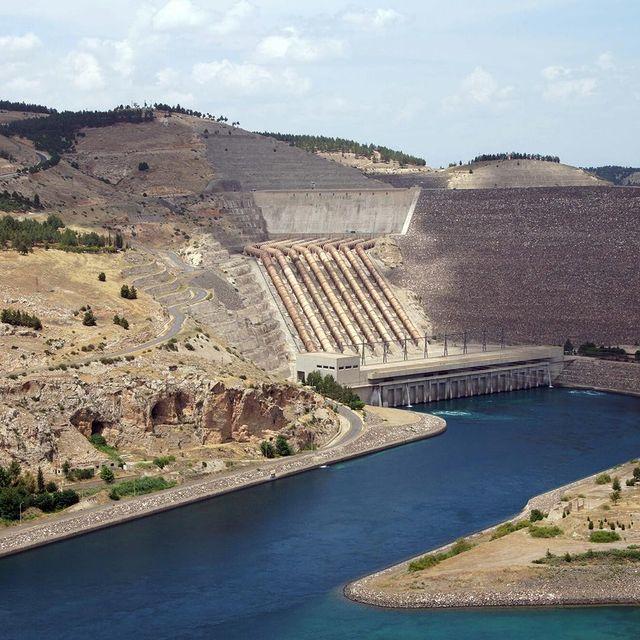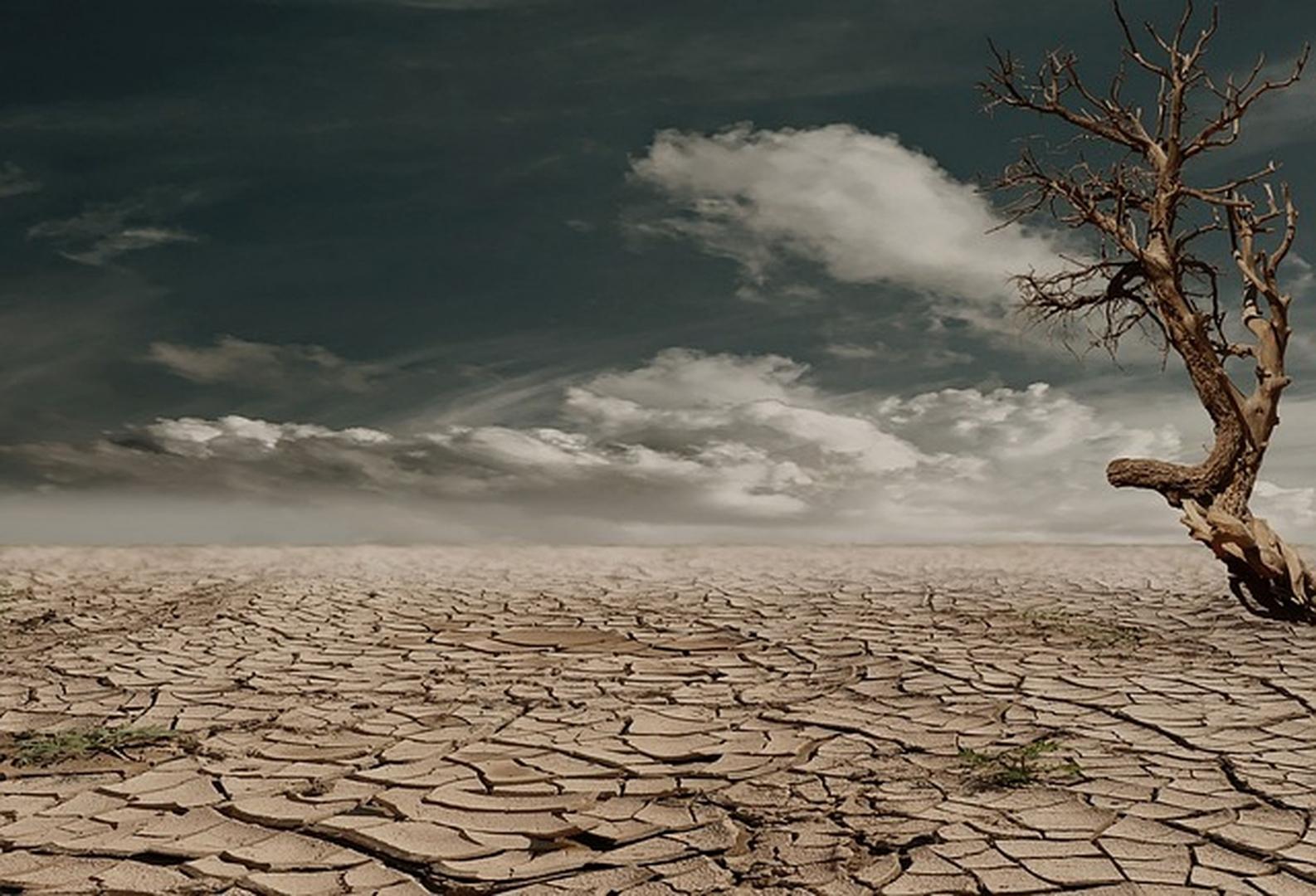Middle East: Battle for water Analysis by Maxim Petrov
The escalation of the water problem, as well as disputes over water, are currently being witnessed between a number of states in the Middle East and North Africa. This problem may eventually become central to international relations. Furthermore, it destabilizes the situation within some states. Turkiye, Iran, Iraq, Syria, Egypt, and Ethiopia are currently heavily involved in these conflicts.
In 2006, Shmuel Bar, director of the Institute of Politics and Strategy at the Interdisciplinary Center in Herzliya (Israel), listed several factors undermining Syria’s statehood. Among them, he called the sharp deterioration of the economic situation and the gradual loss of government control on the ground. The growing unemployment, political chaos, and clashes between pro- and anti-regime forces in several regions of Syria were largely caused by the water crisis.
Arnon Sofer, another Israeli researcher, professor of geography at the University of Haifa and the Israel Defence Forces College, wrote about the causes and consequences of this crisis. In his opinion, the crisis was caused by the regime's unsuccessful demographic policy, which led to too rapid population growth, and long-term drought. The population of Syria has increased sevenfold since 1950, and the water resources needed for both cities and agriculture have decreased.
Sofer pointed out that Turkiye, having built a system of dams on its territory, took half of the 30 billion cubic meters of water from the Euphrates River, the main source of river water in Syria. When natural factors caused the drought, the human factor also affected the ability of Syrians to conduct agricultural work. As a result, many farmers and their family members, a total of about 1.5 million people, moved to cities where poverty zones arose. Enraged by the loss of their habitual existence and poverty, these family clans and tribes joined the struggle for regional domination, which, according to Israeli and other researchers, became one of the reasons for the 2011 uprising against Bashar al-Assad and the civil war in Syria.
However, Turkiye usually rejects all such accusations against itself, pointing out that, firstly, it has the right to use for its purposes the waters of the rivers flowing through its territory, and, secondly, that the Syrian government could more rationally plan its economic course, demographic processes and water policy, while avoiding a lot of problems.

Recently, Iranians have also begun to put forward water claims against Turkiye, which has seriously complicated relations between the countries in addition to the already existing problems between them. According to Al-Monitor, addressing parliament on May 10, Iranian Foreign Minister Hossein Amir-Abdollahian criticized the new dams under construction in Turkiye. He regarded the Turkish projects as "unacceptable" steps that threaten to reduce the flow of water and damage the environment in both Iran and Iraq. He added: "We should not allow countries like Turkiye to use the current lack of an international mechanism to change environmental conditions in either Iran or Iraq."
The Tigris River originates in eastern Turkiye, and flows south, forming the border areas between Turkiye and Syria, as well as between Syria and Iraq, before merging with the Euphrates in Iraq, forming the Shatt al-Arab. According to the Iranian leadership, the Turkish dam and the fox on the Tigris, which opened last year, pose an environmental threat to both Iraq and Iran. Iranian officials accused Turkiye that its water policy caused dust storms, causing a drought that takes place "due to the reduction of water flow in the Tigris and Euphrates".
Turkiye did not ignore what was said. Foreign Ministry Spokesman Tanju Bilgic said that the Iranian statements are "far from being scientific". According to him, Africa and the Middle East are sources of dust and sand storms, which have intensified due to drought, land degradation, deforestation and desertification as a result of climate change. As for the issue of transboundary waters, Turkiye is open to any "rational and scientific cooperation" with Iran.
In turn, Arif Keskin, a Turkish researcher specializing in Iran, argues that the problem of water resources is at the heart of some conflicts between Ankara and Tehran. He notes that Iran is facilitating the illegal emigration of Afghan refugees through its territory to Turkiye in response to the Turkish water policy. "Iranian officials are trying to present Turkish dam construction projects as the main cause of drought not only in Iran, but also in Iraq and Syria. Some even blamed Turkiye for the uprising (2011) in Syria, which was caused by the drought factor. Consequently, they draw a link between Turkish dams and Iran's national security... Iran considers itself entitled even to change the course of the Araz River, but claims that Turkiye has no right to build so many dams. They portray it as a conspiracy against Iran," Keskin said.
He notes that Iran "has made huge mistakes in the management of its water resources and is now trying to hide it by directing popular anger at Turkiye. They don't have any agricultural planning and crop selection based on water resources. They do not use acceptable irrigation methods and do not conduct any environmental impact assessments of dams. The Guard Corps (Islamic Revolution Guards Corps; IRGC) controls these projects".

Iranian researcher Khalil Khani points out that the rate of desertification in Iran is high, more than 20 per cent of the country's territory is subject to this process. It threatens 18 provinces and 97 cities of the country. In total, water problems already affect about 30 million people in one way or another, a third of Iran's population, which causes mass protests. Khani claims that the Iranian water policy is to blame for everything - incompetence concerning the construction of dams and water intake for the cultivation of moisture-intensive crops. He concludes: "The lack of action by various governments over the past five decades, the choice of wrong policies and especially the IRGC's influence on all aspects of Iranian affairs are the main factors contributing to desertification in Iran."
The number of Iranian dams has grown from 316 in 2012 to 647 in 2018. In 2019, Tehran announced a plan to build 109 more dams to pump water to drought-stricken cities. Khani notes the corrupt nature of such projects and the incompetence of their organizers, who, being associated with the IRGC, receive the actual protection of law-enforcement agencies, mastering funds and taking risky steps from the point of view of the state of the environment. All this leads to the drying up of such vital waterways of the country as the Karun and Zayandehrud rivers, to the ruin and flight to the cities of hundreds of thousands of farmers. Poverty zones are growing in cities and protests are gradually intensifying. And this means that in the future Iran is threatened by the Syrian scenario of a popular uprising - Saura.
It is curious that, although Tehran stood up for Baghdad, criticizing Turkiye, its policy in the field of water use has so angered the Iraqis that they plan to sue Iran in the International Court of Justice. And it's not just the irritation of the Iraqi government, but the fact that the growth of social protests in Iraq itself threatens the existence of this state.
In 2019, several million Iraqis took to the streets to fight government forces. They set fire to the headquarters of all political parties. The movement covered mainly Shiite areas of Baghdad and the south of the country. It was not connected with interfaith conflicts (mainly Shiite parties are also in power in Iraq), but it had deep social roots. The rebels rejected political parties. They have built horizontal resistance networks in the capital and southern regions, demanding the provision of jobs, housing, electricity, free medicine and... clean water to the social grassroots and poor areas.
One of the main reasons for the protests was the lack of drinking water. Iran takes [some] part of the water from the Karun River, which flows into the Shatt al-Arab River, on which the Iraqi city of Basra stands. This leads to a decrease in the volume of water in the river and an increase in its pollution. As a result, 2-million Basra, where acute problems with drinking water are observed and where mass poisoning has occurred in the past, has become the epicentre of protests in Iraq.
However, even all the grandiose problems and conflicts listed above pale before the possible consequences of the dispute between Egypt and Ethiopia about the Great Ethiopian Renaissance Dam.
Ethiopia is now attempting to become the African continent's leader in electricity production by constructing a massive dam and hydroelectric power plant (GERD) on the Blue Nile, the Nile's main tributary, at a cost of $5 billion. Part of the energy will be exported and will ensure the inflow of currency into the country, the other part is needed to provide electricity to 60 per cent of Ethiopian families and growing industry. Scientific and industrial modernization and urbanization of the country are impossible without GERD.
Egypt, Sudan and Ethiopia have been embroiled in a bitter decades-long dispute over the dam. The case has reached an impasse amid growing concerns about the threat of military conflict. Egypt and Sudan failed to convince Ethiopia to enter into a legal agreement regulating the filling and operation of the dam, as well as its methods of operation in dry years when there is less precipitation. Consequently, the amount of water that Ethiopia will dump into the downstream countries will decrease. In Egypt, they fear that this will lead to the ruin of millions of peasants, a social and political catastrophe, a new Arab Spring or to an analogue of the Syrian uprising of 2011. As a result, Egypt's leadership has repeatedly issued threatening statements to Ethiopia. However, Ethiopia was not impressed. GERD is protected by powerful air defence systems and surrounded by a military fortified area.
The countries do not have a common border, but they have serious armed forces and a large population. Sudan, dissatisfied with the dam, may also be involved in the conflict on the side of Egypt. In addition, Sudan and Ethiopia have territorial disputes and armed clashes sometimes break out between these states in border zones.
In conclusion, it can be stated that the water problem is gradually becoming central or at least one of the main ones both in relations between the countries of the Middle East and in terms of internal crises, social catastrophes and uprisings within these states. Both phenomena are related. Fearing revolutions caused by water problems, countries are increasingly in conflict with each other over them, trying to shift the blame to their neighbours. It doesn't always make sense. In addition, it may be advantageous for the ruling circles to ensure that the socially conditioned anger of workers and the poor is transferred to other governments and peoples - nationalism is the best antidote to social uprisings.
But the region's water problems caused by population growth, industrial and agrarian modernization, limited water volumes, and incompetent policies are so large-scale that over time they can cause a grandiose political and social crisis that will cover the entire Middle East.








